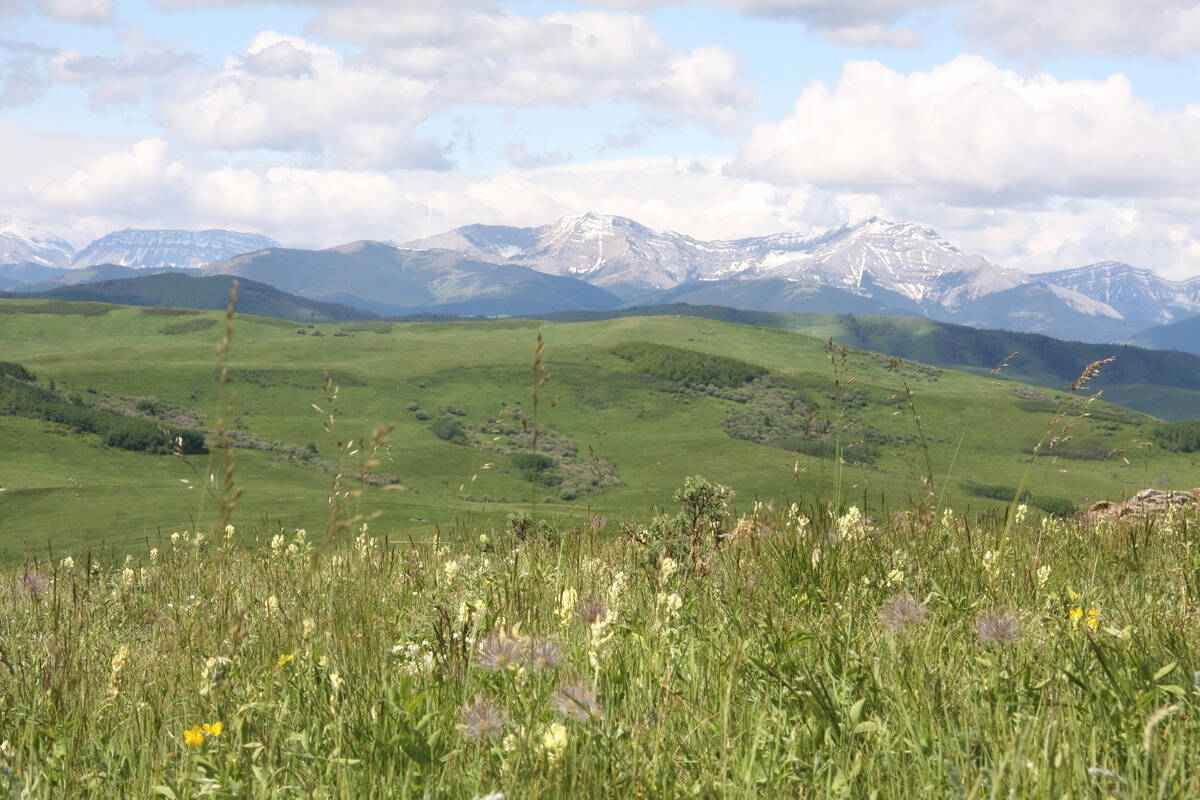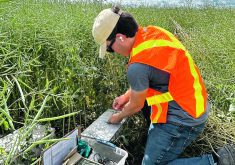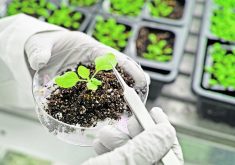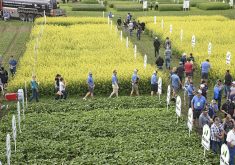When voters in the United Kingdom decided to sever a 40-year-old relationship with the European Union last year, few of them likely considered the potential consequences of punishing tariffs and the loss of free access to the European market of 500 million consumers.
STONELEIGH PARK, U.K. — Voters in the United Kingdom may have decided they no longer want to pay $16 billion a year into European Union coffers, but they still want to be a member of the free trade club.
Dependent on trade, the British agriculture sector wonders where the split with the EU might lead and have started pushing farmer organizations for answers.
Read Also

Selenium not deal breaker in coal mining: expert
Environmental scientist weighs in on coal mining debates in Western Canada, explaining selenium and the technologies and practices to lower its concentrations in nearby waterways to coal mining operations
“As a member organization, they want us to be really bold, and many of our farmers would like us to be absolute protectionist and stop stuff coming in, but we want to trade with the world. That is not going to happen, is it?” said John Boyle, head of livestock for the National Farmers Union representing England and Wales.
There is a massive amount of trade between Ireland, Great Britain and Europe, which could be stymied by tariffs and border inspections that have not existed for 40 years.
Related stories in this Special Report:
- Irish farmers worry about loss of U.K. market
- English producers prepare for breakup with European Union
- Uncertainty reigns in Scotland as Brexit looms
The U.K. exported 500 million pounds of beef, pork and lamb to the EU and outside markets in the first months of this year, which is 18 percent more than the same time last year.
“We have seen food and drink exports double over the last decade,” said Phil Bicknell of the Agriculture and Horticulture Development Board, which promotes British agri-food products around the world.
The NFU said the red meat sector could be hit especially hard because of tariffs.
The beef market is holding at home because of a cattle shortage. There is also a “Brexit bounce” effect in which British consumers are supporting the home-grown product.
Large retailers have promised to switch to 100 percent British for all fresh beef. However, England is not self-sufficient in beef so retailers backstop the supply with Irish product sold at a slightly lower price.
“There is no room for anything else,” said Boyle.
Great Britain is eyed as a high-value meat market.
“This is the best market, and that is why Canada and the U.S. want to supply the U.K. because we have very high prices,” said Phil Bicknell of the development board.
“We have 65 million people who are relatively affluent. If you look at cattle prices on a global scale, it is very high, so it is very attractive.”
The U.K. pork sector is relatively small but actively exports.
It shrunk by 40 percent after Europe introduced animal welfare requirements that banned sow stalls and tethers. The British introduced the new requirements in 1999, but the rest of Europe did not have to comply until 2013.
“The rhetoric was that is OK because British shoppers will go for the higher welfare and the British pork supply chain and supermarkets will go for the higher welfare and support British,” Bicknell said.
“Effectively what happened is price won the day and we lost out. We exported hundreds and thousands of sows and we saw the industry shrink by half.”
The U.K. is a net importer of pork, bringing in about 60 percent of all the pork it consumes. However, it relies on export markets to take offal and muscle cuts considered less desirable in the domestic market.
Markets need to be diversified because the EU could impose tariffs of 10 and 80 percent after Brexit, depending on the meat cut.
Seventy percent of British pork goes to other EU members, but China accepts 15 percent and demand is growing.
Pork goes to China on the basis of a bilateral export agreement through the EU.
“Every single export certificate the U.K. possesses references the EU regulatory framework, so they are all going to have to be redrafted to reflect the fact that we will have our own regulations post Brexit,” said Bicknell.
The U.K is self-sufficient in lamb and one-third of what is produced is exported.
However, a third of consumption is imported, mostly from New Zealand, which is related to seasonality.
“New Zealand and U.K. lamb are theoretically complementary in terms of the season, but there are few markets here for light lambs and mutton,” said Hardwick.
There is growing concern because New Zealand has a tariff rate quota of 280,000 tonnes to the EU. It is hoped the U.K. accepts an 80,000 tonne TRQ following the split while the EU takes the rest. New Zealand may push for more.
The U.K. is 80 percent self-sufficient in dairy and imports cheese and butter, mostly from Ireland. Fluid milk is produced locally.
“With dairy we probably have the biggest potential post-Brexit as long as we can get the supply chain working and find where the markets are. We have been very domestically focused,” said Bicknell.
“It leads to a culture change. How do we take on the Irish mentality of food exports or the Kiwi mentality toward exports?”
More infrastructure investment is needed to step up the processing side.
Everyone has their eye on the Asia Pacific region, but no new free trade agreements can be reached until the EU-U.K. divorce is final.
However, China said it wants to maintain current trading arrangements and is ready to accept a bilateral agreement. However, it needs to understand the regulatory framework under the new regime.
BREXIT scenarios: an impact assessment
The United Kingdom’s decision to leave the European Union, with its single market and the Common Agricultural Policy, has created considerable uncertainty for the agricultural sector. The country’s Agriculture and Horticulture Development Board has identified four main areas of concern:
- Terms of international trade, both with the remaining EU-27 and with other countries
- Domestic agricultural policy in terms of support payments, rural development and market management
- Migrant labour and its availability
- The U.K. regulatory environment
The board released a Brexit study Oct. 11 that evaluated all the farm sectors and potential outcomes in a new trade environment. Key findings included:
- In sectors where direct support accounts for a significant proportion of farm business income, this impact assessment shows a dramatic immediate impact of reduced support levels on business profitability.
- Trade issues also have a significant bearing on farm business income. The U.K. is a net importer of products for most food sectors, and the EU is a key trading partner. In areas such as dairy and pork, three different scenarios show that farmers may benefit from rising prices, reflecting the rising costs of trade.
- In sectors where exports are significant, such as cereals and sheep meat, rising costs of trade for U.K. products into EU markets will mean downward pressure on domestic farmgate prices. In turn, this is reflected in farm business income levels.
- In some scenarios, higher labour costs resulting from restrictions on migrant workers will reduce farm business incomes. The significance of this will be highest in horticulture, where labour forms the highest proportion of costs.
Whichever scenario is chosen, higher-performing farms remain profitable in every sector. These farms are best placed to weather the negative impacts of any of the Brexit scenarios. They are capable of generating positive incomes when the lower-performance farms are making losses.
This suggests that taking steps to improve productivity and performance would enable farmers to mitigate potentially negative impacts of Brexit, even before details on agricultural trade or policy emerge.
Source: Agriculture and Horticulture Development Board
















